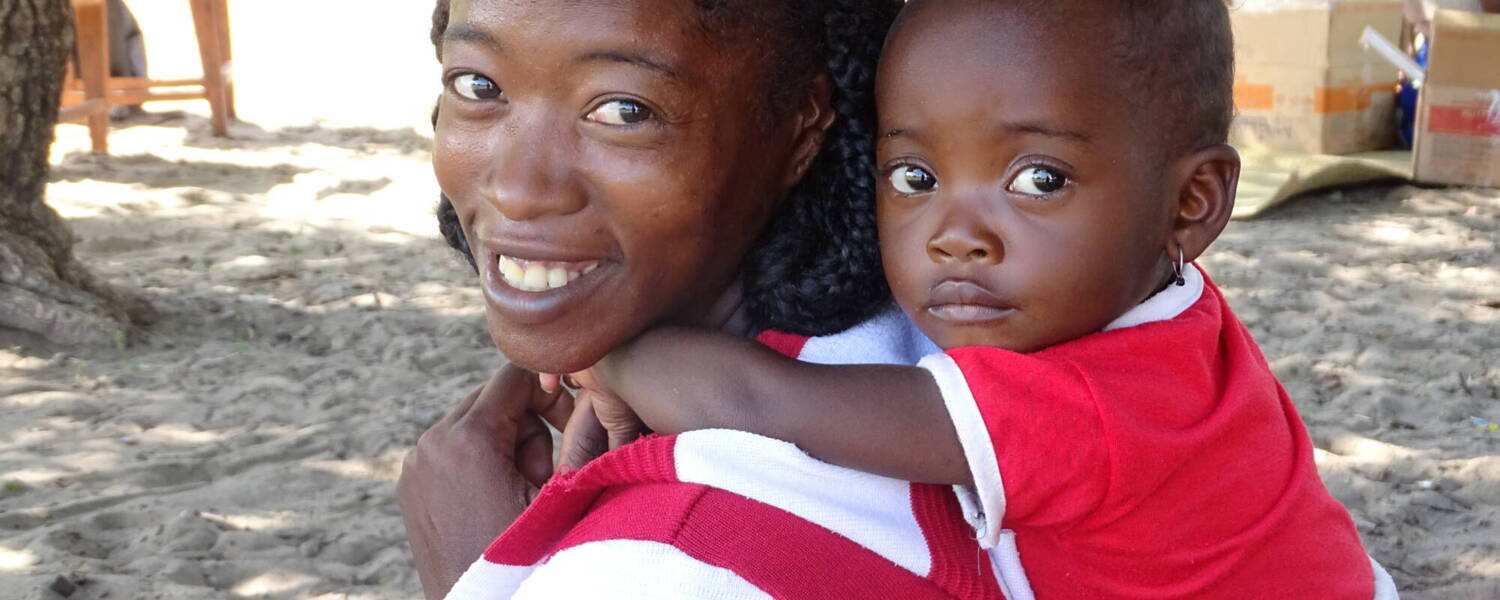Food Security Forecast for 2023 in Madagascar
Madagascar is currently experiencing extreme food shortages and rising prices, exacerbated by the economic impact of COVID-19, pest outbreaks, and the worst drought recorded since 1981.1 Within this context, the Grand South has faced a 63% reduction in agricultural production. Despite humanitarian aid, from April to August 2022 33% of the population of the Grand South is still highly food insecure, including 122,000 people in IPC Stage 4 (Emergency), and 925,000 in IPC Stage 3 (Crisis).2
Following global trends of inflation and rising food and fuel prices, due to the war in Ukraine, Covid-19, and extreme weather events, the predictions for the coming year indicate a deterioration in food security, especially in Madagascar’s already vulnerable Grand South Region. By September 2022, national acute malnutrition is predicted to be within Alert levels and is expected to worsen to Severe levels between October 2022 and January 2023 as a result of Madagascar’s lean season: the period between planting and harvesting when food is less available.3
“Over 2 million people out of the 5.25 million people analysed will likely experience high levels of acute food insecurity (IPC Phase 3 or above) in Southern Madagascar between December 2022 and March 2023.”
- IPC Acute Food Insecurity Snapshot2
Despite monetary policy efforts to stabilise inflation, staple food prices such as rice, maize, and cassava are likely to continue to increase. In addition, the increase in production costs for commercial farmers may reduce the area of land they are able to cultivate for the next round of crops, which will further increase consumer prices.3 Given the significantly lower than average soil moisture conditions, a reduction in root and tuber production, such as cassava and sweet potato is expected. If these predictions come true, families will need to continue buying food from the market at well above average prices. Because of the consecutive droughts and limited access to forests, the availability of wild food in the Grand South is likely to decrease.3
This combination of events is predicted to put families in even more vulnerable positions, worsening the food insecurity situation in Madagascar. To tackle this, families may seek to increase non-agricultural income and employ unsustainable coping strategies. This may include increased sales of livestock, wild fruits, firewood and charcoal, taking children out of school to work, and atypical migration. While this may provide short-term relief for families, it is likely to increase their vulnerability to further shocks in the future. To address these challenges, SEED’s Emergency Food Distribution Programme has been supporting children in southeast Madagascar aged 6-59 months to recover from moderate and severe acute malnutrition. In collaboration with local health centres, SEED distributes ready-to-use therapeutic food and protection rations, including rice, beans, and oil, to malnourished children and their families. Since February 2021, the programme has supported the recovery of 2,686 malnourished children, with an overall recovery rate of 99.3%.
Vaha Filomena, age 19, is one of 13,129 family members that has been supported by SEED’s Emergency Food Distribution Programme. Vaha Filomena is married and the mother of two children, aged 2 years and 8 months, living in Sarisambo, one of the 15 communes supported by the programme. Their primary means of subsistence is agriculture through the cultivation of rice and cassava. After the passage of two back-to-back cyclones, the rice fields they worked in were flooded and 70% of their crops were destroyed. As a result, her children were only able to eat one meal a day. Vaha Filomena's children participated in the malnutrition screening conducted by SEED-trained community health workers and her oldest son was diagnosed with moderate acute malnutrition. Her family is currently being assisted by SEED's Emergency Food Distribution Programme, with her son on track to make a full recovery.

“Thanks to the support from SEED, my child's health has returned and the support we received has helped my family a lot as the food was given at a difficult time when there was no food.” - Vaha Filomena
Although Vaha Folomena and her family are grateful for SEED’s support, they are aware that the food security situation is still deteriorating, and they are not alone. SEED is doing everything we can to support families like Vaha Folomena’s and equip communities with the necessary skills and resources to reduce the burden of ill-health and improve community resilience in the face of the next crisis, through the provision of education and outreach to increase access to contraception, antenatal care, and safe delivery information and services. Building on existing capacity within the region's health systems4, SEED’s programme supports families in the region to take charge of their health.
SEED needs to raise approximately £60,000 to continue to strengthen the resilience of the most vulnerable families across 95 communities in the region, particularly over the lean season. Please donate now to support SEED’s Emergency Food Distribution Programme and recovery and resilience work.
References
1. Health Cluster, WHO. Madagascar Health Cluster activated to respond to increasing hazards related to climate change. 23 March 2022 https://reliefweb.int/report/madagascar/madagascar-health-cluster-activated-respond-increasing-hazards-related-climate
2. ReliefWeb, IPC. Madagascar [Grand South & Grand South-East]: IPC Food Insecurity Snapshot, April - August 2022 - Madagascar. 30 May 2022, https://reliefweb.int/report/madagascar/madagascar-grand-south-grand-south-east-ipc-food-insecurity-snapshot-april-august-2022.
3. FEWS NET: Madagascar Food Security Outlook June 2022 to January 2023, Emergency (IPC Phase 4) outcomes likely to emerge in the Grand South during 2022/23 lean season, 2022 https://fews.net/southern-africa/madagascar/food-security-outlook/june-2022
4. SEED Madagascar. Long-term thinking: how building the capacity of health workers can be critical to community recovery and resilience. 27 May 2022. https://madagascar.co.uk/blog/2022/05/building-capacity-health-centres-and-community-health-workers
